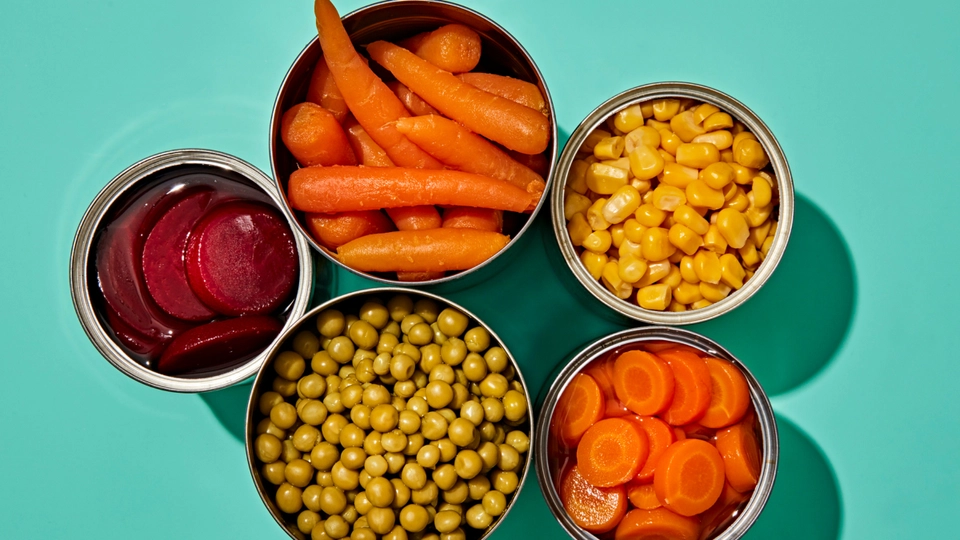If the pandemic taught us anything, it was the importance of stocking your pantry with shelf-stable canned foods you can count on to help get a meal on the table, without a trip to the grocery store. But historically, canned foods have gotten a bad rap as second-rate options that come up short in nutrition and flavor – almost to the point where most people are slightly embarrassed to roll up to the check-out counter with a cart populated by foods stuffed into tins. This is a shame, because the truth is many canned foods are still nutrient-rich.
In fact, the canning process has less impact on nutrition than you may think. A study in the journal Nutrients found that people who ate a lot of canned foods had a higher intake of 17 essential nutrients compared to people who rarely ate canned foods. And in terms of flavor, items like canned corn, peaches and tomatoes are harvested at peak ripeness and packed shortly thereafter, so they actually can taste fresher than out-of-season fresh options.
Not all canned items are processed foods. It’s time to embrace canned foods and stop shunning them. With a seemingly never-ending shelf life, canned goods can encourage creativity and flexibility in the kitchen (and survival during a zombie invasion, naturally).
Get your can opener at the ready, because these are the canned foods you always want to keep in your pantry.
#CannedTomatoes
It’s a total misconception that for vegetables to be healthy, they must be fresh and live in your crisper. Just take canned tomatoes as an example!
Canned tomatoes, including the deeply tomato-flavored crushed variety, are laced with the plant compound lycopene. This is a member of the carotenoid family that may help in the battle against premature cognitive decline as we age. A report in the Journal of the National Cancer Institute also suggests that greater intakes of lycopene can lower the risk for developing breast cancer. Acting as a potent antioxidant, lycopene can help vanquish the free radicals in our bodies, which can damage DNA and initiate cancers and worsen brain functioning.
And when it comes to the lycopene found in tomatoes, it’s worth noting that the processing that goes into producing canned tomatoes can increase its bioavailability. In other words, it makes the compound more accessible so we can better reap its health rewards.
Vitamin C is another nutritional benefit of canned tomatoes; it’s a nutrient linked to improved blood pressure numbers. Plus, vitamin C enhances our absorption of iron from plant-based foods such as beans – and it’s necessary to make sure the immune system is operating properly. And who isn’t pondering immunity these days?
Perhaps most importantly, canned crushed tomatoes are full of delicious flavor all year round. This is in contrast to out-of-season fresh options, which are frequently second-rate. While some canned options contain added sugar and higher amounts of salt, it’s relatively easy to limit this problem. Just look at labels to find cans with no sugar listed in the ingredient list and with lower sodium levels displayed on the nutrition panel.
Using canned crushed tomatoes for pasta sauce is already a no-brainer, but there are plenty of other uses you might not have thought of. They’re convenient to have on hand and make an easy addition to burritos, meat or lentil stews, Indian curries, shakshuka and, yes, classic tomato soup. And don’t forget that you can blend crushed tomatoes with a canned chipotle pepper for a sauce that delivers a serious kick. Try poaching a fillet of fish in this jazzed-up red sauce.
Read the rest of the Canned Foods Clean Eating Magazine recommends here!

Recent Comments